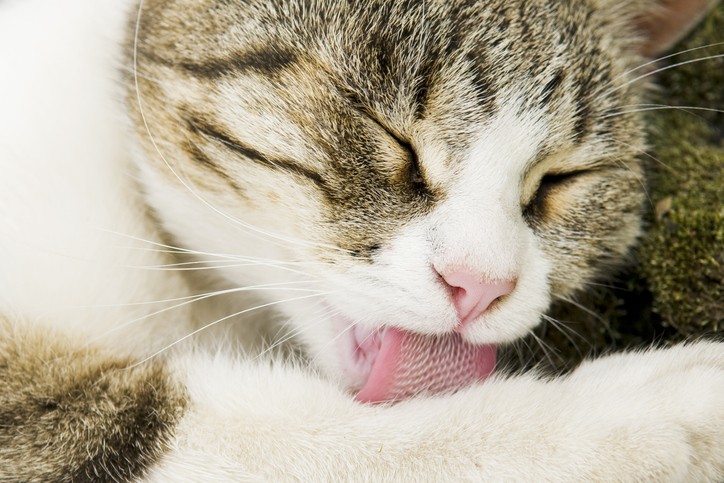
My Cat Has Hairballs; Should I Be Worried?
Do you have a cat? Does she cough up hairballs often? Cats and hairballs sometimes seem to go together, but for some cat owners, hairballs can be concerning. So how do you know when it’s time to be worried about your cat’s hairballs?
In this article, we’ll give you a few situations in which your cat’s hairballs might be abnormal, and then provide a quick rundown of what normal hairballs are like. With this information, you should be able to choose when it’s time to take your cat to the veterinarian and when you can just wait and see how she does.
When to Worry About Cat Hairballs
If your cat is showing any of these symptoms it would be best to call your veterinarian.
Hairballs Every Day
Your cat should not be spitting up hairballs daily, and although this is extremely uncommon, it can be a sign that your cat is losing her hair too quickly. It may occur when your cat has a health problem causing her fur to fall out, or there may be some other underlying condition contributing instead. Hairballs this frequent are a cause for concern.
Tries to Spit Up Hairballs but Can’t
Watch your cat when she’s trying to cough up a hairball. She will usually sink low to the ground and hunk there, coughing and possibly tossing her head back and forth a little. This is normal. However, if she continues to do this over and over without a hairball coming up, then she may be having difficulty getting rid of the hairball in question.
Vomits Often with No Hairballs Present
Vomiting and coughing up hairballs are two different activities for cats, although sometimes cats may vomit up hairballs along with food pieces if they’ve just eaten. If your cat is vomiting a lot and is not spitting up hairballs, this may be a sign that she has an obstruction from the presence of a hairball.
Frequent vomiting in cats may also mean other underlying health conditions ranging from intestinal parasites to cancer and many in between. Take her to the vet to find out what could be causing this vomiting issue.
Signs of Pain or Distress
Hairballs should not be painful or upsetting to a cat. Even though some cats may seem a little distressed in the process of spitting up a hairball, they should go right back to normal after the hairball comes up. However, if your cat is showing signs that she is in distress or pain before or after a hairball, then there may be something else wrong.
If your cat is trying to cough up a hairball but can’t and is showing signs that she’s in pain at the same time, don’t wait to take her to the vet. See an emergency vet if you need to, as these symptoms together usually indicate bowel obstructions.
When Not to Worry About Cat Hairballs
The following are normal cat behavior when it comes to hairballs.
Has Normal Amount of Hairballs
Hairballs happen, unless you have a hairless cat, so don’t worry if your cat is spitting them up now and then. Some cats may even have a couple a month, and this is usually fine too.
Coughing Up Hairballs is Easy
If your cat has a few coughing spells and then spits up her hairball normally, there is likely nothing to worry about. You should only worry if your cat seems unable to get a hairball up after trying many times.
Hairballs are More Common During the Hot Months
Cats’ hairballs may increase and decrease in frequency depending on the time of year. This is perfectly normal. Your cat’s natural instincts kick in during the hot weather and cause her to shed more often. This behavior, in turn, means she is going to lick and swallow more of her hair, which will turn into hairballs in her stomach.
Your Longhaired Cat Has More Hairballs Than Your Shorthaired Cat
If you have two cats, or if you had a shorthaired cat in the past and now have a longhaired cat, you may be surprised at the difference in their hairball frequencies. Longhaired cats naturally have more hairballs than shorthaired cats, and this is nothing to worry about.
In Conclusion
As you can see, most hairballs in cats are nothing to worry about. It’s very rare for a cat to have a serious problem from a hairball, but that doesn’t mean it is uncommon. If you think there’s any chance your cat is dealing with an obstruction, take her to the emergency vet right away.
Additionally, if you have any further questions or concerns about your cat’s hairballs, be sure to ask your vet. The vet can give you plenty of information and help you better understand your feline friend at the same time. To book an appointment with your Boston Veterinary Clinic vet, fill out the online form today!